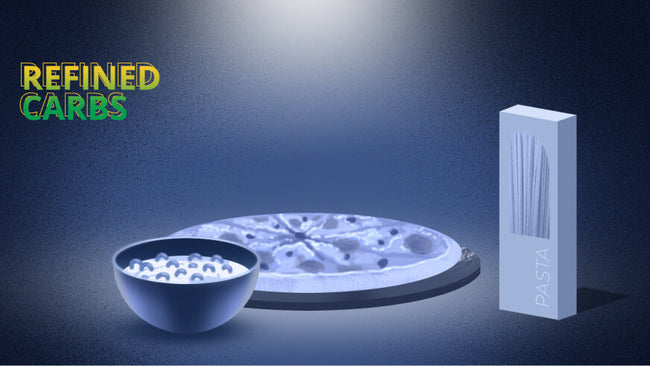Aging is a natural part of life, and with that comes a decrease in mental acuity and sharpness. However, it doesn’t have to be that way. There are quite a few changes that can be made to ensure that you don’t go down the path of accelerated cognitive decline. In this article we discuss a few updates you can make to your diet, sleep, exercise, and how different supplements, brain games, and brain exercises can help boost your memory, focus, concentration, and keep you mentally sharp over the years.
What is Mental Acuity?
Mental acuity, or mental sharpness is the person’s ability to focus and concentrate, recall information, understand it, and process information quickly. As we age, mental acuity can decline and is often referred to as cognitive decline. It arises due to the inability to store and recall large amounts of information at the right speed and right time. With time, your mental capacity tends to reduce and impacts your overall growth and development, but mental sharpness is important because it determines your ability to move and operate in the world.
Does age affect mental acuity?
As you age, your memory begins to lose, and your mental acuity reduces. The time taken to process and deliver information often reduces and creates a deep impact on your mental sharpness. Older people are also affected by decreased mental acuity when they feel symptoms of brain fog after any surgery. Often this happens naturally, but environmental and lifestyle factors play a huge role in your mental acuity. However, cognitive decline can still occur without old age. Some of the common factors that affect mental acuity are:
- Inability to focus on your thoughts
- Lack of sleep and unorganized sleeping patterns
- Alzheimer’s and other existing mental conditions
- Inability to concentrate and remember
- Unhealthy lifestyle
- Lack of proper food and diet
Why should you care about increasing mental sharpness?
The reason why mental acuity and a sharp mind are so important is because it determines our ability to move through the world safely and effectively, and majorly impacts our communication as well. A healthy mental acuity increases your ability to concentrate and focus on your work and other important things in life. It further enhances your mood and keeps you positive in life. With a positive self-image and a sense of worth, you feel confident to take up new things and challenges in life. When you want to build a successful career, get through your promotion, run a successful business, and improve your productivity, it becomes extremely critical to increase your mental sharpness.
Tips to Increase Mental Acuity
1) Follow a proper diet
Nutrition is a known component for your body’s overall growth, and its benefits in cognitive health cannot be overlooked. A diet with high sugar content, saturated fat, and processed food can have detrimental effects on your physical and mental health. You should opt for nutrition-rich food, which keeps your brain healthy.

Photo by Brooke Lark on Unsplash
- Green leafy vegetables- Leafy vegetables like spinach, kale, or coriander are rich sources of iron that are associated with improving oxygen delivery to your brain. Hence, it is important to include green veggies in your diet and consume a bowlful of these every day.
- Nuts- Consuming a handful of nuts daily can have a remarkable impact on your heart health, and a healthy heart is linked to a healthy brain. Nuts provide healthy fats, antioxidants, and vitamin E, all of which contribute to improving your cognitive functions.
- Iodine: Get your iodine through Himalayan sea salt, kelp, and unprocessed table salt.
- Turmeric- This deep-yellow spice is a key ingredient in Indian cuisine and comes with a lot of benefits. Curcumin, an active component of turmeric, helps improve your memory and boosts the growth of brain cells. It also helps in preventing age-related decline and memory loss, thereby improving your mental acuity.
- Carotenoids and Flavonoids: These antioxidants can be ingested through yellow and orange fruits and vegetables. Examples include corn, guava, mangoes, mustard, collard greens, pumpkin, squash, tangerines, and watermelon.
- Fatty fish- Around 60% of your brain is made of fat, and half of that fat is of omega-3. Hence, it is important to consume rich sources of omega-3 fatty acids like salmon, trout, cod, oysters, and sardines. They form an excellent choice for brain health and helps in improving your mental sharpness.
- Dietary Lipids: If you’re a fan of fatty fish, you’re in luck. Salmon, mackerel, and cod play a huge role here, as well as eggs, avocados, and non-hydrogenated oils.
- Vitamin C and D- While all vitamins are essential for your body, vitamin C and vitamin D play a significant role in preventing your cognitive decline and keeping your mental health in place. They help fight off the radicals that damage your brain and support your mental acuity as you age. You can get these vitamins by incorporating oranges, guavas, tomatoes, kiwis, and berries into your diet. You should also take a sunbath for a natural intake of vitamin D.

Photo by Vladislav Muslakov on Unsplash
2) Get more sleep
With an ever-increasing workload, your sleep hygiene has taken a hit. You might often stay up late to work on an important project thinking to achieve more, but in the long run, this leads to a lack of sleep, creating an adverse impact on your mental health. A lack of proper sleep can cause obesity, heart disease, and alzheimers. With a good night’s sleep, your cognitive performance is restored, and your brain functions smoothly. If you are serious about increasing your mental sharpness, you need to prioritize your sleep time.
Wondering how to improve your sleep quality? Switch off all the lights, create a dim space, put away all your electronics and gadgets, keep a pleasant room temperature, and unwind yourself completely. Also, do not consume caffeine many hours before bed time. Research has varied to 6-8 hours before bedtime. Here are some better options to stay awake without caffeine. And just like caffeine, make sure to not workout 4-6 hours before bedtime, as your energy levels can increase after a workout, thereby increasing the time it will take to fall asleep. By doing this, you can get rid of all the distractions and prepare your mind for a quality sleep.

Photo by Free To Use Sounds on Unsplash
3) Regular workout
Regular exercise can make your body healthy and strengthen your mind. When you work out, your body releases a hormone called dopamine, which makes you feel good and gives a natural boost to your brain. Workouts can help reduce stress, elevate your mood, and even lower your risk of chances of getting depression. Moreover, it can help maintain mental acuity in midlife and reduce the risk of dementia. Any different types of workout will help here, from HIIT (High Intensity Interval Training), to weight training, to aerobic exercises such as walking and running, or even breathing exercises including meditation and yoga. Exercise is also helpful in increasing blood flow to the brain.
4) Practice meditation
Similar to physical fitness, it is also important to devote time to mental wellness. Practicing meditation on a regular basis gears your brain and memory cells. Meditation is known to increase your cognitive functions and stimulate your abilities to concentrate and focus on work. When you practice a quick meditation session daily, you can prepare your brain for an improved mental health. Meditation is known to help in age-related mental decline and prevents your brain cells from damaging. Additionally, deep mediation can also reduce your stress and anxiety and keeps you positive throughout the day.

Photo by Free To Use Sounds on Unsplash
5) Puzzles and games
Now here’s a fun way to keep your brain sharp. There are quite a few games that you may have played in the past, or play today that help boost memory, focus, and overall cognitive function. These games include solving puzzles like jigsaw or Sudoku, playing Chess or card games, solving Rubik’s cube, or learning a new skill. When your brain is involved in these games, it activates your brain cells and keeps them healthy. They create a healthy impact on boosting your brain’s visual and auditory processing. Additionally, playing music, taking a new route to work, or in your regular walk, and learning a new language are great ways to boost your mental acuity.
6) Micronutrients
There are quite a bit of micronutrients that we may miss, no matter how consciously we are eating. Therefore, supplements can make up for these deficiencies. Some good options will be Fish oil, Gingko Biloba, and Ashwagandha. Fish oil keeps stress under control and improves serotonin levels. Gingko Biloba is a natural anti-oxidant helpful for improving mental acuity. Ashwagandha can help your body manage stress, can boost brain function, lower blood sugar levels, and help fight symptoms of anxiety. Visiting a functional and integrative medicine doctor who can help you discover which ones work best for you is recommended.
Conclusion 
As we decline in age, we don’t have to decline in our cognitive abilities. By incorporating the tips mentioned above and changing some lifestyle patterns, you can maintain a healthy cognitive performance. You can also follow these mental alertness tips which will also help you to increase your brain power. Mental acuity and keeping your mind sharp can be achieved. While all these changes will not overnight, it is important to create a healthy lifestyle and imbibe these practices so that you can take a step closer to improving your mental acuity.
References:
- Kutscher SJ. Sleep and Athletic Performance. Principles and Practice of Sleep Medicine. 2017. doi:10.1016/b978-0-323-24288-2.00064-7.
- Healthline. 2020. How To Improve Memory: Power, Concentration, Retention, And Focus. [online] Available at: https://www.healthline.com/health/how-to-improve-memory#1 [Accessed 2 August 2020]

































